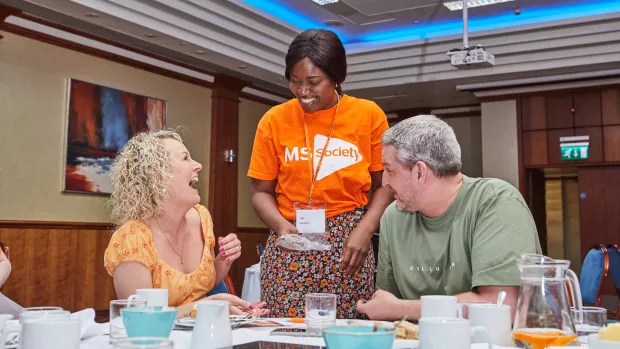
First questions
What kind of independent group do you want to set up? Answer these questions to help you decide.
- Why do you want to set up an independent group?
- How will your group meet?
- If you're meeting face-to-face, where will you meet?
- Which online platforms could you use to connect people?
- How often do you want to meet?
- How many people do you expect to join your group?
Why do you want to set up an independent group?
This question will help you think about how to talk about your group. It could be you're looking for a mixture of things from this list. It helps if you identify and focus on just one or two at the beginning. You can expand later depending on interest from your group.
- As a purely social group for chats and company
- As an interest group, for example based around a hobby like park runs or reading books
- As an activity based group, for example to organise talks or go to events together
- As a support network to find people with similar life experiences
How will your group meet?
- Face-to-face
- Online only
- A mixture of both
If you're meeting face-to-face, where will you meet?
- Indoors, for example at a local coffee shop or community centre
- Outdoors, like in a park or for city walks, rolls or strolls
Which online platforms could you use to connect people?
If you're meeting online, a platform like Zoom has tools to interact with your group and moderate meetings. Social media platforms can help you stay connected outside of meeting times. If you plan to meet face-to-face, have a think about what you'll use to stay connected between meetings?
- Explore tips on using WhatsApp and Zoom
- Take our e-learning for tips on using Facebook, Instagram and Twitter
How often do you want to meet?
This is something you'll want to discuss with your group once you've formed it. But in the beginning it can help to schedule regular times. And ask for feedback in between meetings about if they're working for the people you want to reach.
Be realistic, running a group can very rewarding, but also take a lot of energy. So don't commit to more than you can take on, especially in the early stages.
Some ideas for scheduling regular dates:
- once a month on a regular date, like the third Thursday of every month
- every fortnight on a regular day
How many people do you expect to join your group?
It's hard to know how many people to expect at the beginning. But making an early guess helps you think about the advantages and disadvantages of online platforms and offline venues. You can always review your estimate as you go.
- An intimate number, fewer than 10. It's easier for this size of group to meet easily in a coffee shop without booking, or on Zoom.
- A number more than 10 but less than 100. You might want to think about hiring a community space or booking an area in a pub. Equally, a free Zoom account can handle these numbers. You'll be able to see up to 25 people on one computer screen. You can change your settings to see 49 people, but they'll be very small.
- More than 100 people. At the moment, the free version of Zoom only allows meetings up to 100 people. Any more than that and you have to have a paid membership. Finding a physical venue for this number of people also takes a bit of extra work and planning.
What's next?
We hope these questions have helped you think about what you want to do. Go back to the start page to explore next steps.

